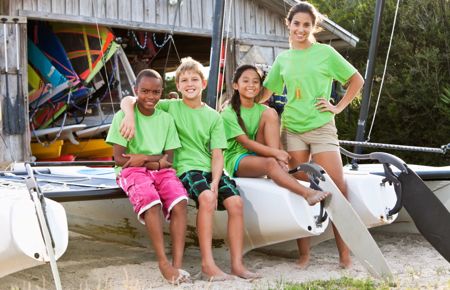As coach for more than fifteen years, and eight of those as a boys varsity soccer coach, I have seen the benefits of fitness as well as the benefits of being on a team sport. Individual fitness teaches our children that pain may be scary but it isn’t fatal. It’s manageable and with time, discipline and courage it is mastered and employed to serve our brighter futures. Fitness shows our children the tether between the body, mind, soul and mood. As the body feels good, so does the mind, promoting optimism and endurance. I’m currently helping a men’s minister lose some needed weight, and he now has the endurance he needs to withstand the pressures of ministry like never before.
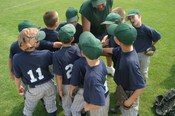 Ideally, sports teach our children how to take life-affirming risk with no assurance of victory. It gives them a theater in which to test their own metal, to “leave it all on the field,” and in doing so, walk away, win or lose, with their head held high. Learning how to both win and lose is essential to the abundant life God wants for all of us. But we are not letting our children lose like we used to, and we are committing this fatal mistake at an alarming rate. And sorry moms, you’re leading the way in helping to create this new breed of child: weak, pliable, and small-souled due to the sin of over-parenting. And when it comes to the growing form of intentional abuse called bullying, the result is far worse than we initially realize. Coaching the game of life is an important skill that every adult should master in training children.
Ideally, sports teach our children how to take life-affirming risk with no assurance of victory. It gives them a theater in which to test their own metal, to “leave it all on the field,” and in doing so, walk away, win or lose, with their head held high. Learning how to both win and lose is essential to the abundant life God wants for all of us. But we are not letting our children lose like we used to, and we are committing this fatal mistake at an alarming rate. And sorry moms, you’re leading the way in helping to create this new breed of child: weak, pliable, and small-souled due to the sin of over-parenting. And when it comes to the growing form of intentional abuse called bullying, the result is far worse than we initially realize. Coaching the game of life is an important skill that every adult should master in training children.
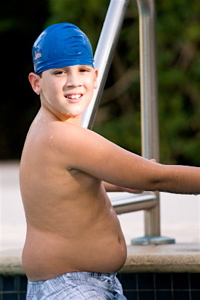 Your good and natural desire to love and protect your little chick is great–as long as it’s not inordinate. All bad things are good things gone bad, and when it comes to children, sports and life-affirming lessons learned, one of the most dangerous influences today, as dangerous to our souls as dehydration is to muscles and organs–is the growing desire (actually fear) to scrub all discomfort and pain from our children’s lives–both physical and psychological. Far from loving, it creates fragile, insecure and low-wattage children who constantly look to others to make decisions for them. Weather in diet, exercise, social interaction or personal faith you and your children are not called by God to be comfortable, but rather to experience some pain and thus achieve change.
Your good and natural desire to love and protect your little chick is great–as long as it’s not inordinate. All bad things are good things gone bad, and when it comes to children, sports and life-affirming lessons learned, one of the most dangerous influences today, as dangerous to our souls as dehydration is to muscles and organs–is the growing desire (actually fear) to scrub all discomfort and pain from our children’s lives–both physical and psychological. Far from loving, it creates fragile, insecure and low-wattage children who constantly look to others to make decisions for them. Weather in diet, exercise, social interaction or personal faith you and your children are not called by God to be comfortable, but rather to experience some pain and thus achieve change.
This type of guardian hovers like a search-and-rescue helicopter, transmitting fear and over-protecting children.
CHARACTERISTICS OF AN OVER-PROTECTING PARENT
Instead of keeping children safe, fearful over-parenting makes children timid and fragile—the kind of children that adult predators prey on and that bullies target. With the best of intentions, parents who shield their children from all of life’s difficulties actually make their children’s lives harder, especially as they become adults. Such children grow older, but they have a harder time maturing.

Simply by watching fearful parents worry about what might happen, our children learn to invent things to fear, and will then live small in the scary, imaginary Land of What If. They play it safe, even when that means falling behind their peers and missing out on opportunities and dreams. This and more leads to the creation of cowardice in our children. And God takes the sin of cowardice very seriously. The Bible states, “The cowardly, the unbelieving, the vile, the murderers, the sexually immoral, those who practice magic arts, the idolaters and all liars—their place will be in the fiery lake of burning sulfur.” Cowardice is included among the worst temptations you can give in to.
 And statistically, our children are sinning nearly everyday at school even when they go to private Christian school. Here’s why: studies show that only about 13% of kids who witness bullying actually help the target. About 40-60% actually join the attack that the bully started. Chances are this includes your child.
And statistically, our children are sinning nearly everyday at school even when they go to private Christian school. Here’s why: studies show that only about 13% of kids who witness bullying actually help the target. About 40-60% actually join the attack that the bully started. Chances are this includes your child.
Bullying is not about conflict, misunderstanding, miscommunication, “drama,” or an inability to control one’s anger. Bullies are highly selective at who, how and when they attack. Unlike those who cannot control their anger, bullies often plan their attacks ahead of time. Most are highly calculating, not compulsive. It is the deployment of superior power (social, physical, verbal) that is repeated and intended to harm another person for no justifiable reason. It’s intentional abuse.
As an expert witness in legal matters regarding bullying, I explain in court that your average bully targets the weak because they believe they are superior to them, and because the pain, suffering and anguish of others brings them pleasure, which is the definition of sadism.
Get more support for rearing confident and virtuous children in our Family Fitness department.
And the reason why most kids fail to help their fellow student in need isn’t because they don’t know and feel bullying is wrong. They tell adults that they are too afraid to help. When we know and feel something is wrong and it’s within our power to act and we don’t, it’s usually due to the sin of cowardice.

So if we want our children to avoid one of the least recognized but damaging sins they can commit, we must put the right kind of courage back on their spiritual radar; not just the physical courage that many learn through sports, but moral and spiritual courage that they learn by doing the right thing.
 TOUGH TIPS TO BUILD RUGGEDLY RIGHTEOUS CHILDREN
TOUGH TIPS TO BUILD RUGGEDLY RIGHTEOUS CHILDREN
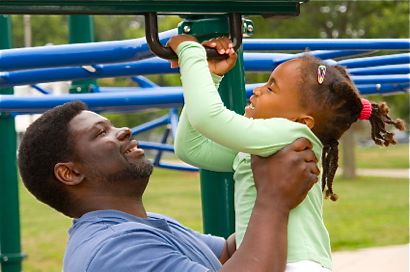 Give your children a better understanding of what grows courage, the virtue that helps us to do the right thing even while fearful. It gives us strength while experiencing pain, grief and risk. And it doesn’t come naturally. The great philosopher Plato explained that courage is like a muscle–it only grows stronger by flexing it. We don’t grow courage by merely watching courageous movies or reading books about courageous people.
Give your children a better understanding of what grows courage, the virtue that helps us to do the right thing even while fearful. It gives us strength while experiencing pain, grief and risk. And it doesn’t come naturally. The great philosopher Plato explained that courage is like a muscle–it only grows stronger by flexing it. We don’t grow courage by merely watching courageous movies or reading books about courageous people.
Many believe that courage is the virtue that all other virtues depend upon. Without courage, we can’t be consistently good. We can’t be consistently kind, merciful or compassionate, because creating such acts eventually means that you will have to disagree with someone, sometimes forcefully. Popular author J.K. Rowling understood this point well when she wrote: “It takes great courage to stand up to one’s enemies. It takes similar courage to stand against one’s friends.”
Indignation and anger play a role in growing courage as well. “Hope has two beautiful daughters,” wrote St. Augustine, “Their names are anger and courage. Anger that things are the way they are. Courage to make them the way they ought to be.” Eric Hoffer was more succinct: “Anger is the prelude to courage.” The fact that physically and mentally challenged children are among the most bullied in any youth gathering should make us indignant, which is fuel for courageous action that is non-violent but still assertive and strong.
Men who want to help children grow in courage can draw upon the many tools and tips in our COURAGEOUS Men’s Fitness resource.
Expect them to intervene. My three children are expected to help targets when it’s within their power to help them. They have been told that there is no neutrality when it comes to bullying.
Helping our children stand up to bullying without falling down is easier than they realize. Sometimes all they need to say is “Stop,” or “Leave him/her alone,” in an assertive manner. They can walk up and escort the target away, report what they saw or heard to authority, or invite the target to join them for lunch or during free time.
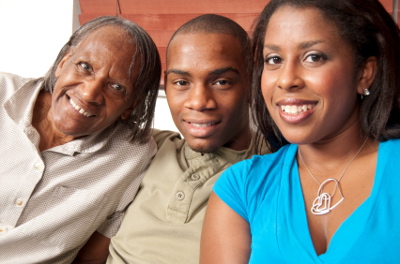 After speaking to Mothers of Preschoolers (MOPS) Washington State, I spoke with a woman who told me that a few years ago, while working at a grocery store, she was approached by a new employee who was much older than her. The younger employee started introducing herself to the older and new employee–but was interrupted.
After speaking to Mothers of Preschoolers (MOPS) Washington State, I spoke with a woman who told me that a few years ago, while working at a grocery store, she was approached by a new employee who was much older than her. The younger employee started introducing herself to the older and new employee–but was interrupted.
“I know who you are,” said the older woman. “You do?” said the young lady. “Yes, when you were in high school, you asked my son to join you during lunch because you saw he was being bullied and didn’t have many friends. You don’t know this, but you saved his life. I found a suicide note he had written, but your kindness gave him hope and strength. Thank you.”
 Your child can be this ruggedly righteous as well. But it won’t come naturally. It must be expected of them the way we expect them to eat good food, practice an instrument, or practice their favorite sport.
Your child can be this ruggedly righteous as well. But it won’t come naturally. It must be expected of them the way we expect them to eat good food, practice an instrument, or practice their favorite sport.


